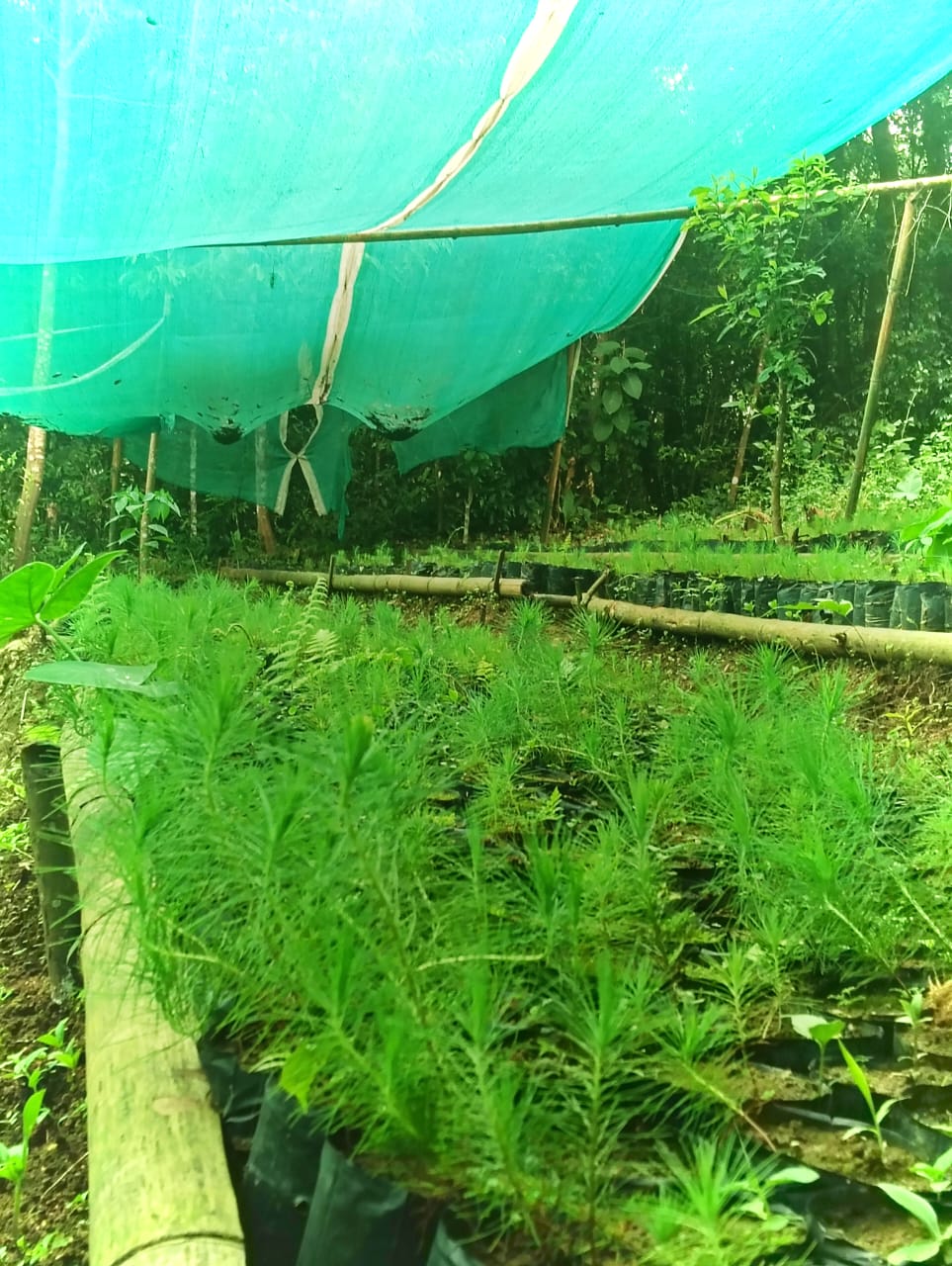
Where Hope took Root
For years, Kong Markynti Mawlong stood in front of a blackboard, calling roll call as children burst into the classroom, laughing and shouting. Then one day, the bell rang but she didn’t have to go.
Her contract as a teacher at the government lower primary school in Nongrim Umksih had come to an end. Quietly. Without warning. The routine that once gave her identity was suddenly gone.
At 37, with four children to raise and no regular income, she found herself waking up each day wondering what to do next. Her husband continued working to support the family, but she felt adrift and eager to contribute, yet unsure how.
A few months after losing her job, Kong Markynti heard about an awareness meeting being held in her village. It was about a project called MegLIFE. She didn’t know much about it, but she was open to learning something—anything—that might help her find her way forward.
She attended the meeting, and later joined the orientation. The ideas—about forests, water, nurseries—were unfamiliar. But she kept going, listened carefully, and slowly began to get a sense of what the project was all about. It didn’t all make sense immediately, but she stayed with it, learning bit by bit.
Eventually, she was nominated to serve as a Village Community Facilitator (VCF) under the project. As she began her training and got involved in field activities, her understanding of the project deepened. She was introduced to different aspects of natural resource management—soil conservation, plantation drives, and the importance of forest restoration.
It was during one of these training sessions that she met Forester Morningstar Makhroh, who introduced her to the idea of building and maintaining a community nursery. The concept was new to her, but it made sense. She saw how growing saplings could help restore land, generate income, and create opportunities for others in the village.
With encouragement from the project team and the guidance she received during her training, Kong Markynti began putting her thoughts into action. The idea of a nursery was no longer just a concept—she was ready to try it out in her own village.
She identified a small plot of land and started preparing it with help from a few neighbours. What began as a modest effort gradually grew into something much larger. As the work increased, she brought others in to help.
From once being without work and unsure of her next step, she had now reached a point where she could offer work to others in her community. It was a quiet but meaningful shift—something that had taken shape slowly, through persistence and learning.
She eventually brought together 12 women and 2 men from her village, paid them fairly, and together they raised more than 30,000 pine saplings.
Word started to spread. People from nearby areas began to hear about her little green nursery tucked away in the hills—carefully planted and quietly thriving. Neighbours dropped by to see it for themselves. Gradually, interest began arriving from beyond the village.
Then came an order she hadn’t expected: 1,00,000 saplings from Arunachal Pradesh. She couldn’t meet the full demand in her first year, but that wasn’t the point. It showed her what was possible.
Today, Kong Markynti continues to supply saplings to local markets and nearby VPICs. But more than that, she’s created something bigger than a nursery. She’s created opportunity, dignity, and a renewed sense of purpose—not just for herself, but for others in her community.
This is not a story of overnight change. It’s a story of quiet determination, steady learning, and the kind of transformation that takes root slowly—until one day, it begins to grow.




